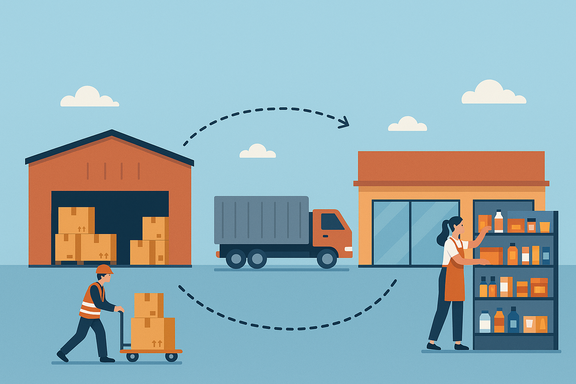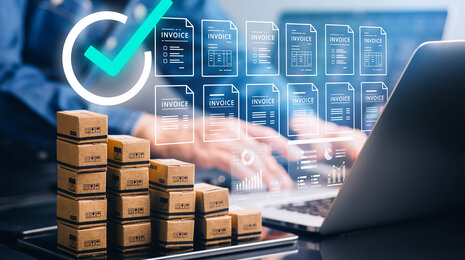
EDI and FMCG
FMCGFrom warehouse to shelves in record time
Speed, accuracy, and product availability – three factors that define success in the Fast-Moving Consumer Goods (FMCG) sector. Consumers expect fully stocked shelves, online shoppers expect on-time deliveries, and trading partners expect transparent communication. In this environment, Electronic Data Interchange (EDI) has become a key technology that’s transforming how FMCG companies manage their supply chains.
Recent surveys in Europe show that up to 80% of FMCG companies report reducing their order processing time by more than half after implementing EDI. At the same time, invoicing errors have dropped by over 90%. In such a fast-moving market, EDI is clearly a direct competitive advantage.
Why FMCG puts logistics to the test
The FMCG sector is among the most demanding when it comes to supply chain management. Huge transaction volumes, short product shelf lives, and constant pressure on both speed and cost create an environment with zero tolerance for error. Even a small delay in communication between manufacturers, distributors, and retailers can lead to empty shelves, lost sales, or penalties from retail chains. In such a dynamic setting, manual, paper-based processes are no longer enough—speed and accuracy are absolute musts. Any lag in communication among supply chain partners increases the risk of fines or customer dissatisfaction.
EDI as a supply chain accelerator
By introducing EDI, FMCG companies gain a transparent, fully digital flow of information—from order placement to goods delivery. This eliminates manual intervention, reduces errors, and enables faster, more efficient operations across the entire supply chain.
In practice, the benefits include:
- Real-time ordering: immediate transmission of requests from retail chains.
- Smarter production planning: real-time demand data minimizes overproduction and downtime.
- Faster, more accurate document processing: delivery notes and invoices are handled error-free.
- Optimized inventory management: automated inventory data supports precise logistics planning.
- Always-stocked shelves: products move from production to sales floors in record time.
Digital innovations in FMCG
EDI is no longer a stand-alone solution. In today’s FMCG landscape, it’s increasingly integrated with other technologies that take digitalization to the next level.
Key trends include:
- IoT sensors and smart warehouses that automatically generate EDI messages as inventory levels change.
- Predictive analytics that use EDI data to forecast demand and optimize promotions.
- Automated and e-invoicing systems that accelerate financial processes between partners.
- Cloud-based platforms that make EDI more accessible to smaller suppliers and lower the cost of digital adoption.
Together, these technologies are transforming EDI from a simple document exchange tool into the strategic backbone of the intelligent supply chain.
EDITEL: a trusted partner for FMCG companies
EDITEL has long been a trusted partner in the FMCG sector, helping manufacturers, distributors, and retailers connect all partners into one digital ecosystem. Today, adopting EDI in FMCG is no longer a technological option—it’s a prerequisite for success. Companies that fully embrace EDI can respond to market demands faster, cut operating costs, and strengthen relationships with trading partners. In an industry where every hour—and sometimes every minute—matters, EDI is the technology that turns logistical challenges into a competitive edge.



